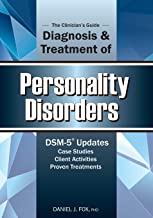Personality Disorder
A personality disorder is a type of mental disorder in which you have a rigid and unhealthy pattern of thinking, functioning and behaving. A person with a personality disorder has trouble perceiving and relating to situations and people.
Cluster Number:
Wiki Number: PW162
Diagnosis: Personality Disorder(s)-Classifications and Lists
US Patients: This entry is “PW162” just because that number falls on “Personality” in the alphabetical listing.
World Patients:
Sex Ratio: This entry contains the general classifications of personality disorders: paranoid, schizoid, schizotypal, antisocial, borderline
Age Onset: histrionic, narcissistic, avoidant, dependent, and obsessive-compulsive personality disorders.
Brain Area:
Symptoms: Enduring maladaptive behaviors of individuals but violating the local, social norms
Progression:
Causes: This entry provides several different perspectives and their respective listings of the various types of personality disorders.
Medications: This entry does not describe the characteristics of any individual diagnosis as this set of overviews is designed to do.
Therapies: No symptoms, progression, cause, medication nor therapy is provided for any specific diagnosis.
Youtube Video:
Short Films about Mental Health-Personality Disorders
Amazon or Library Book:
Diagnosis and Treatment of Personality Disorders
Click the book to link or order from Amazon.

